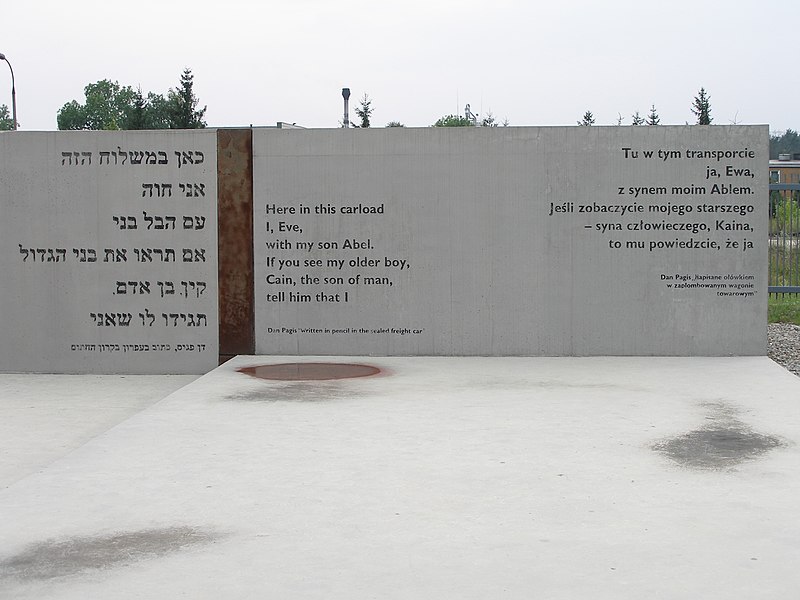Module 3: Religion & Culture
The Significance of Holocaust Literature

This poem was written by Holocaust survivor Dan Pagis, who would go on to earn his Ph.D. and teach at Hebrew University in Jerusalem. In the lecture by Dr. David Roskies, which you will find below, he explains the significance of Pagis’ poem.
Dr. David Roskies: On Holocaust Literature
In this lecture, Dr. David Roskies discusses the power of Holocaust literature to give voice to the voiceless. Reflecting on the Holocaust commemorations he attended in his youth and the courses he took at the Hebrew University in Jerusalem under a professor whose identity as a Survivor was concealed until later in life, Dr. Roskies describes how he came to understand how Holocaust literature expresses the inexpressible.
Assigned Reading
In this introduction to their volume, Holocaust Literature: A History and Guide, Roskies and Diamant discuss the different stages through which Holocaust literature has gone and the many genres and subgenres it has spawned. They also discuss the tone and language used in these stories. As you read, take note of what they say about the ways in which religious language can be employed, even in stories that are not religious. It might be useful when you read the stories themselves.

